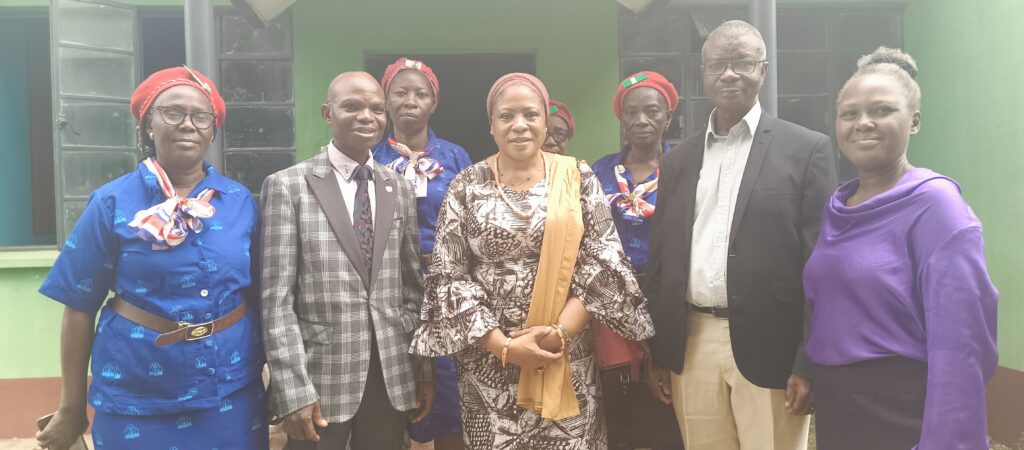As Nigeria battles a growing wave of drug addiction, leading mental health professionals, royal advocates, and civil society stakeholders have raised the alarm over the nation’s soaring substance abuse rates, calling for an aggressive, united response to curb what has been described as a looming public health disaster.
This call was made during an event to commemorate the 2025 International Day Against Drug Abuse and Illicit Trafficking, hosted by the Neuropsychiatric Hospital, Aro, Abeokuta, with the theme: “Breaking the Chains: Prevention, Treatment and Recovery for All.”
Delivering the keynote address, Dr. A.K. Ayankola, a Consultant Psychiatrist at the hospital, described the drug crisis in Nigeria as a “growing epidemic,” with millions of users lacking access to care or recovery support.
Citing data from the 2017 National Drug Use Survey, Dr. Ayankola revealed that 14.3 million Nigerians between the ages of 15 and 64—14.4 per cent of the country’s population—used drugs, a rate nearly three times the global average of 5.6 per cent at the time.
“The most affected demographic is young adults aged 25 to 39, with over 376,000 people injecting drugs—a dangerous, high-risk behaviour that increases vulnerability to diseases and death,” he warned.
He described Substance Use Disorder (SUD) as a chronic mental illness that alters the brain’s reward system and decision-making capacity, debunking the notion that addiction is a moral failing.
“Addiction is not a crime. It’s a medical condition,” he emphasized. “And yet, our health system continues to treat it with neglect, stigma, and underinvestment.”
Dr. Ayankola highlighted major shortcomings in Nigeria’s drug control efforts, including inadequate treatment centres, poor community-based support, shortage of trained personnel, and limited access to evidence-based interventions.
As the National Drug Control Master Plan (2021–2025) approaches its end, the psychiatrist called for an urgent review of progress and a strengthened national response.
He proposed a five-point strategy which includes; Removing barriers to access;
Expanding treatment infrastructure; Training and retraining of mental health workers; Implementing a robust monitoring and evaluation system; and Ensuring strong political leadership and inter-agency coordination.
Dr. Ayankola stressed that prevention must start from early childhood and continue through all stages of life, addressing root causes like poverty, poor education, peer pressure, and family dysfunction.
“Prevention isn’t just about stopping drug use—it’s about helping children reach their full potential. That’s how we save a generation,” he concluded.
… Olori Matemilola: Drug Abuse Begins Where Parenting Fails
Speaking as Guest of Honour, Olori Ameenat Matemilola, wife of the Olowu of Owu Kingdom and Executive Director of Solace Foundation, delivered a strong message to Nigerian youths, urging them to maintain clear minds and avoid drugs if they hope to have a meaningful future.
“You cannot think straight when your mind is clouded by drugs. You can’t build a great story for your life that way. If you want to be a change agent, your mind must be clean,” she said.
In an interview with journalists, Olori Matemilola called for a return to intentional parenting, noting that many cases of drug abuse stem from neglect and broken family systems.
“Male or female, we’re all humans—we all make mistakes. But drug use is a terrible mistake that stems from poor decisions or depression.
“ It’s time we begin to raise children, not just have them. Parenting must be sensitive, deliberate, and nurturing.”
She warned that today’s drug users could end up in sensitive positions in both the private and public sectors if the nation fails to intervene early.
Also speaking, Dr. Oluyinka Majekodunmi, who represented the Provost and Medical Director of the Neuropsychiatric Hospital,Abeokuta, Dr. Paul Agboola, lamented the increasing number of drug-induced psychiatric cases and urged parents to take a more active role in their children’s lives.
“This hospital has done so much in treating addiction cases, but we cannot do it alone. We need the community to play its role,” he said.
He urged the public to monitor their wards and seek professional help at early signs of drug involvement.
In his welcome address, Chairman of the Planning Committee for the event, Pastor Ogbemudia Ogbebor, described drug abuse as one of the greatest threats to Nigeria’s future and called for collaborative action across all sectors.
“This is no longer a personal problem. It’s a national emergency. The time to act is now,” he warned.
The event brought together stakeholders from health, education, students and civil society, all united in the fight against the rising tide of drug abuse.
Do you want to share a story with us? Do you want to advertise with us? Do you need publicity for a product, service, or event? Contact us on WhatsApp +2348183319097 Email: platformtimes@gmail.com
We are committed to impactful investigative journalism for human interest and social justice. Your donation will help us tell more stories. Kindly donate any amount HERE




